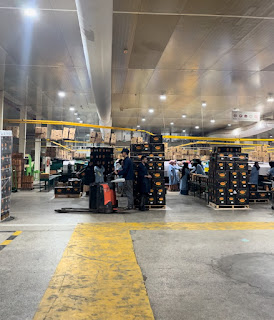Social Mobility in Morocco (Blogger #3: Ability or Social Status)
Just as everywhere else in the world, wealth is directly linked to quality of life in Morocco. There also exists great distances between the rich and the poor of Morocco, commonly referred to as a “wealth gap.” In Morocco, the wealth gap is exacerbated by a mix of social, cultural, and legal factors. Socially, there exists a disconnect between rural and urbanized areas. Those in rural regions often lack access to education, healthcare, and other government services, further restricting opportunities for social mobility. Culturally, societal norms and gender roles can limit women’s access to job opportunities. In 2023, labor force participation among Moroccan women over the age of 15 was reported at 19.8%, compared to 68.3% of Moroccan men 15 or older (ILO, 2024). Whether this be from familial expectations to become a homemaker or lack of positions available, the fact remains that only 1 in 5 Moroccan women receive a paycheck, and therefore have financial independence. While strides hav...



